Asked about the potential of the new iPad mini eating into its existing iPad sales, the company's chief executive Tim Cook said it has "learned not to worry about cannibalization of our own product."
The analyst had asked how Apple expects the iPad mini to sell compared to the original iPad, phrasing this as its "cannibalization factor over the older product."
Cook began by answering, "we don't really have an old product. We have only new products. We just announced the fourth generation iPad."
He continued, "The way we look at this is that, we provide a fantastic iPod touch, we provide an incredible fourth generation iPad, iPad mini and iPad 2. Customers will decide which one, or two, or three or all four they would like and will buy them."
Cook seemed to be correcting the idea the full sized iPad was "old," but of course Apple does still sell a variety of "old products," including the iPhone 4 from 2010, last year's iPhone 4S, the previous generation iPod touch as well as last year's iPad 2.
"We have learned over the years not to worry about cannibalization of our own product," Cook said. "It's much better for us to do that than for somebody else to do it.
"And the far, far bigger opportunity here are the 80-90 million PCs that are being sold per quarter. There's still over 300 million PCs being bought per year.
"And I think a great number of those people would be much better off buying an iPad or a Mac. And so I think that's a much bigger opportunity for Apple. And so instead of being focused on cannibalizing ourselves, I look at it much more that it's an enormous incremental opportunity for us."
Apple's historical fear of cannibalization
In the early 1980s, Apple worried that sales of the Apple III would be hurt by the existing Apple II if it made them cross compatible, so it limited the backwards compatibility of the new model in order to encourage the development of new Apple III-optimized software. This backfired, contributing to the demise of the Apple III, the company's first significant product failure.
Apple's Lisa and Macintosh teams also rivaled for product attention within the company, and after the Mac emerged as a winner, Apple continued its incompatible Apple II line, fostering contention between the two product families championed by the "Apple II Forever" slogan promoted by its chief executive John Sculley.
Rather than backing Steve Jobs' plans to make the Macintosh into a business workstation, Sculley focused the company on profiting from the aging Apple II, a move that helped push Jobs out of Apple, where he developed NeXT, the basis of what would become OS X. Apple continued selling old Apple II systems into the 90s.
At the same time, Sculley was trying to manage the introduction of tablet computing, which was complicated by two warring factions within Apple, one aligned behind Newton, the other a competing concept that was spun off as General Magic. But then Apple worried that Newton sales might eat into its existing Macintosh line, so it purposely limited the Newton platform to PDAs.
After Steve Jobs returned to Apple, he refocused the company on profitable products. After recognizing the trend toward portable systems, he invested in notebooks and allowed them to eat up sales of Apple's desktop models. He also backed the iPod, allowing it to overshadow Mac sales. Jobs' Apple also backed iOS devices over the embedded iPod software, allowing the new iPhone to eat up its iPod sales.
Jobs, and now Cook, similarly avoided any efforts to prevent education and other markets from buying up iPads at the expense of more costly Macs. The result of giving people what they wanted has resulted in Apple selling mostly lighter, thinner notebooks that share iPad design elements, while dropping its Xserve and other products that people weren't showing much interest in buying.
At the same time, Mac sales overall have grown dramatically, from less than one million per quarter just five years ago to around 4-5 million per quarter today. Apple is also now selling more mobile Macs (which Apple just noted make up 80 percent of its computer sales).
Whether these numbers have been blunted by iPad sales in some markets doesn't seem to matter, because Apple now sells 14 million iPads per quarter as well.
Cook's suggestion that iPad sales have gnawed on PCs more than the Mac appears to be true, given that Apple continues to outpace the growth of the PC industry (globally, Apple said Macs are up 1 percent, contrasted with an 8 percent decline by PCs in general).
 Daniel Eran Dilger
Daniel Eran Dilger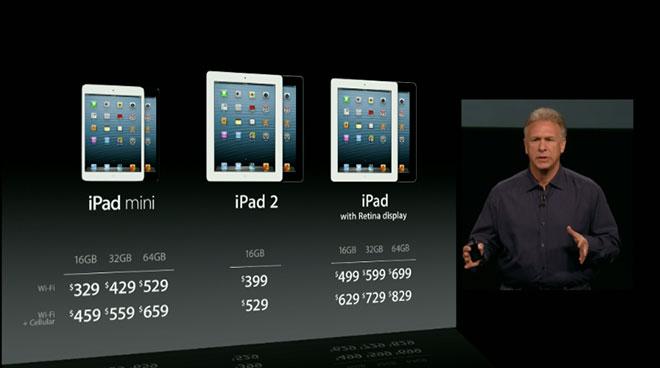














 William Gallagher
William Gallagher
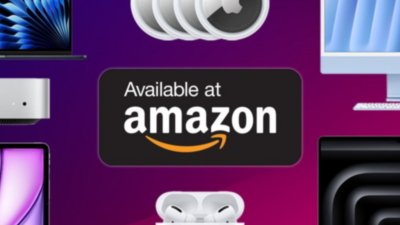
 Christine McKee
Christine McKee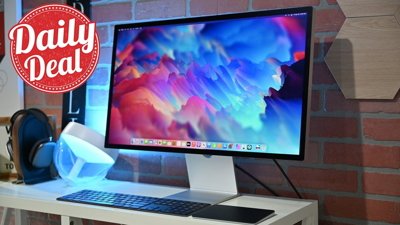
 AppleInsider Staff
AppleInsider Staff
 Chip Loder
Chip Loder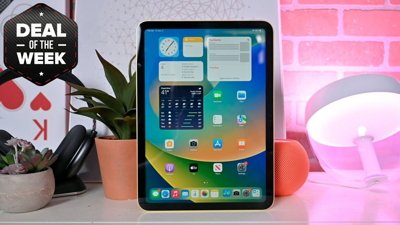
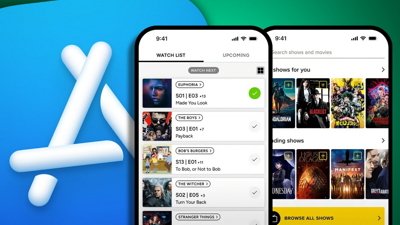
 Malcolm Owen
Malcolm Owen
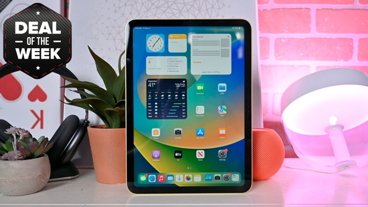
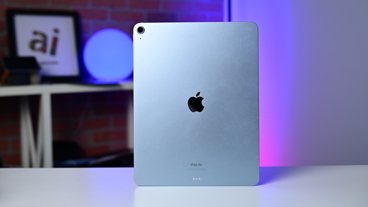
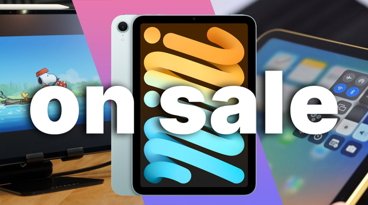






42 Comments
He's right, obviously, but I suspect the iPad mini is priced at also $329 to make the $499 iPad more appealing. They probably kept the iPad 2 around because it's a profit monster. But also, pricing the mini at $329 could be a very clever psychological trick, to make it seem more aspirational and thus selling even better, not worse, than if it were priced at $299. This may sound counter-intuitive, but things are not always what they seem.
Cook is right. If you don't eat your own babies, someone else will.
Folks assume that are going to buy the iPad Mini would eventually have given in and bought a full size one. But that is really only true perhaps half the time. The rest they do without. And even in those cases, they are staying within Apple which is always better than going elsewhere.
As usual, DED, good article. I think TC really enjoyed the opportunity to make those incisive remarks personally. It was both a good capper to Apple's remarkable efforts to get these new products to market, and it was free ad and prelude to a staggeringly good holiday season for Apple and its customers.
Considering their iPad sales are already being cannibalized by the market anyway, why would he worry about this? I do think it's odd that he priced the thing at 329 instead of 299, considering how natural a progression it would have been going from that to 399 for the iPad 2, and 499 for the iPad 4. I think the market critics would have been much kinder as well, which is silly, since 30 dollars doesn't really make that much of a difference for a product that's already 300+ dollars anyway.
Going to be interesting to see how well these things sell though, considering the pricepoint, and the inferior screens compared to the Fire HD and the new Nooks. That's the other confusing thing to me: why didn't they make the screen Retina? Even if I were in the market for something this size, I'd be holding off until next year, when Apple invariably upgrades the screen, replaces the iPad 2 with the iPad 4, and introduces the iPad 5 with similar unibody construction and slimmed down screen tech featured in the iPhone 5, the new Touch, and the Mini.